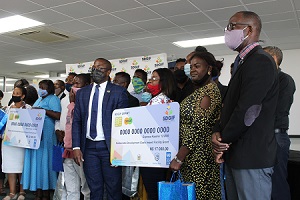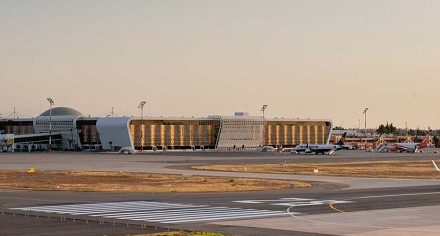
A single market is a potential growth accelerator for MSMEs that provide 80% of jobs in Africa

By Lorna Mbatia and Brenda Vilita.
The agreement establishing the African Continental Free Trade Area (AfCFTA) is ambitious. Bringing together 55 African Union member states, it will form the world’s largest free trade area by the number of participating countries.
It will also establish a single continental market where goods, services and people can move, effectively expanding intra-African trade across the continent, enhancing competitiveness and supporting economic transformation of Africa.
The Agreement covers trade in goods and services, investment, intellectual property rights and competition policy. The Phase II negotiations of the agreement hold many opportunities, particularly for Intellectual Property (IP).
IP rights are territorial in nature, which means that national laws regulate the conditions for their acquisition, maintenance and enforcement.
IP laws may be used as a tool to stimulate innovation and facilitate development through disclosure and transfer of knowledge and know-how.
Article 4 of the AfCFTA Agreement prescribes the cooperation of State parties on investment, intellectual property rights and competition policy. Therefore, the negotiations in Phase II should be anchored on the attainment of a single continental market.
A single market is hailed as a potential growth accelerator for Micro, Small and Medium Enterprises (MSMEs). According to the World Economic Forum, MSMEs are responsible for more than 80 per cent of Africa’s employment (in a market of about 1.2 billion people) and contribute up to 50 per cent to its Gross Domestic Product (GDP). Therefore, the IP Protocol is expected to facilitate the growth of the MSMEs in many ways.
How IP Protocol can facilitate growth of MSMEs
First, the IP Protocol should focus on eliminating the differential treatment of the AfCFTA countries compared to countries outside Africa. This difference emanates from the participation of different countries in different multilateral and bilateral IP rights treaties. For instance, some countries are not members of the World Trade Organisation (WTO) and therefore do not benefit from some international IP principles such as national treatment and most-favoured-nation treatment.
[In international trade, the most-favored-nation (MFN) clause requires a country to provide any concessions, privileges, or immunities granted to one nation in a trade agreement to all other World Trade Organization member countries. Although its name implies favoritism toward another nation, it denotes the equal treatment of all countries. On the other hand, the national treatment clause forbids discrimination between a Member’s own national and also the nationals of the other Members].
Second, the IP protocol should leverage on already existing regional IP regimes, such as ARIPO and OAPI, in order to streamline the continent’s IP policies. [Africa has two regional patent systems, OAPI (Organisation Africaine de la Propriété Intellectuelle or African Intellectual Property Organization) and ARIPO (African Regional Intellectual Property Organization).
Even though the larger African economies of South Africa, Nigeria and Egypt do not form part of the regional systems, the OAPI and ARIPO system provide a relatively cheap, easy and effective way of extending IP protection to a total of 35 African countries with a combined nominal GDP of $420 billion].
These institutions should be accorded support for effective implementation of the policies.
Lastly, the IP protocol should focus on opening the continent’s market. As far as IP is concerned, this may be attained by reviewing member States’ laws and policies regarding exhaustion of rights.
Exhaustion of rights (also known as the first sale doctrine) stipulates that where the IP right owner places a protected good or work in the market, they cannot subsequently prevent its commercialization.
The market in this instance is usually limited geographically.
Currently, countries have different policies regarding exhaustion of rights. Kenya, for example, operates international exhaustion, while Rwanda operates national exhaustion. The laws and policies ought to be streamlined to provide for a regional exhaustion, making the entire Africa region to be regarded as one market in line with the objectives of the AfCFTA.
Exhaustion means the consumption of rights in IP subject matter as a consequence of the legitimate transfer of the title in the tangible article that incorporates or bears the IP asset in question.
Exhaustion occurs when the owner of an intellectual property right transfers ownership of a particular embodiment of that right, or a consumer product sold under a particular IP right. Geographical scope refers to the geographical limits, within which the sale must take place, or the article must be manufactured, in order to trigger exhaustion.
Under national exhaustion, intellectual property rights to a particular article are exhausted only if it is sold or manufactured within the country whose IP laws the rights owner has invoked. With international exhaustion, the location of sale or manufacture is irrelevant, and any authorized transfer of ownership results in exhaustion].
Apart from the general provisions on co-operation by member States, the IP Protocol should also focus on IP regimes that are not sufficiently exploited in Africa, including geographical indications, plant variety protection and the protection of genetic resources, traditional knowledge and cultural expressions.
Geographical Indications
A geographical indication (GI) is a sign used on goods that have a specific geographical origin and possess qualities or a reputation due to that place of origin. In Africa, this type of protection is important since Africa’s agricultural products typically have qualities that derive from their place of production and are influenced by specific local geographical factors.
Article 22.2 of the WTO Agreement on Trade Related Aspects of Intellectual Property (TRIPs) allows countries to determine which form of protection would be appropriate for geographical indications. In Africa, some countries, such as Kenya and South Africa, protect GIs under trademark legislation while others, such as Morocco and Uganda, have separate legislations for it.
In 2017, the African Union adopted the Continental Strategy on Geographical Indications. The strategy recognizes the importance of GIs as a tool for use in sustainable rural development and food security.
Consequently, communities will be able to economically leverage the unique qualities of agricultural products based on their geographic areas of production. The exploitation of benefits associated with GIs by local communities is expected to result in economic development especially for women and youth.
Protecting Traditional knowledge
Africa has a rich variety of knowledge and practices—cultures that are unique to individuals and communities in the continent. The traditional knowledge of indigenous communities ought to be considered in the IP Protocol for socio-economic development.
The protocol should provide minimum requirements for the protection of traditional knowledge, genetic resources and cultural expressions. The traditional knowledge passed from generation to generation has resulted in the discovery of medicines and other innovative solutions. With proper guidelines on protection of traditional knowledge and cultural expressions, communities will be able to benefit economically through the transfer of this knowledge.
The protection provided must be defensive. This will empower communities to promote their traditional knowledge, control its uses and benefit from its commercial exploitation.
Going forward
The AfCFTA Agreement’s objectives are achievable should the IP Protocol focus on the harmonization of policy and laws by setting minimum standards and effectively tackling the aspects of IP that are under commercialized in Africa and whose protection can open up revenue generating avenues for countries.
A strong IP regime across the continent will facilitate the growth of MSMEs and will lead to increased job creation especially for women and the youth.
For more information on COVID-19, visit www.un.org/coronavirus
Africa Renewal












































